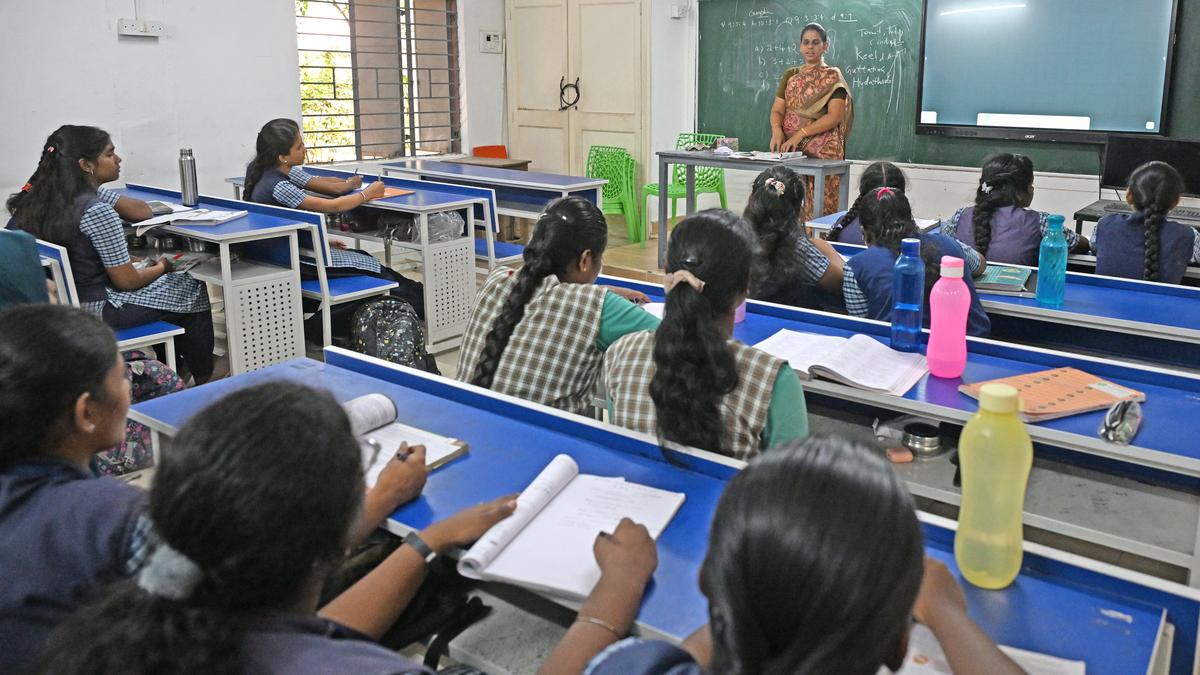Representational file image.
| Photo Credit: The Hindu
Tamil Nadu has become the first State to seek a review of a Supreme Court judgment which gave school teachers two choices — to qualify for Teaching Eligibility Test (TET) in two years or be retired compulsorily.
On September 1, 2025, a two-judge Bench of Justices Dipankar Datta and Manmohan invoked the court’s extraordinary powers under Article 142 of the Constitution to direct that teachers across the country with more than five years of service left must pass the TET in two years.
The court justified that the Right to Education (RTE) Act of 2009, which was implemented from 2010, required teachers to clear TET. The Bench only gave teachers with less than five years to retirement the option to not take TET.
“In-service teachers recruited prior to enactment of the RTE Act and having more than five years to retire on superannuation are concerned, they shall be under an obligation to qualify the TET within two years from date in order to continue in service. If any of such teachers fail to qualify the TET within the time that we have allowed, they shall have to quit service. They may be compulsorily retired; and paid whatever terminal benefits they are entitled to,” the judgment authored by Justice Dipankar Datta directed.
Multiple States, from Uttar Pradesh to Kerala, have voiced their intention to seek a review of the judgment.
Tamil Nadu, in its review petition , said the judgment affects about four lakh teachers in the State alone. If implemented on the ground, the State would have to bear witness to “classrooms without teachers”. The children would ultimately suffer, as teachers would focus more on their TET preparations for the next two years, forced to save their livelihoods.
The State argued that the RTE law and norms cannot be applied retrospectively. It contended in the review that several State governments, including Tamil Nadu, West Bengal and Odisha, were granted relaxation by the Centre under Section 23(2) of the RTE Act in view of the shortage of trained teachers and the inadequacy of teacher education institutions in those States.
“The hardship caused is not confined to the teaching community. The State of Tamil Nadu alone employs 4,49,850 teachers in government and aided schools, of whom 3,90,458 are not TET-qualified. If the directions are implemented, the entire school system faces the imminent prospect of collapse, with mass disqualification of teachers and denial of classroom instruction to millions of children. This creates a direct conflict with Article 21A of the Constitution, which guarantees the fundamental right to education. The balance between ensuring quality of education and safeguarding the right to education must be maintained by prospective measures, not by retroactive exclusion of nearly the entire teaching force,” the State argued.
The State argued that “even if the objective of enhancing teaching quality is accepted as legitimate, compelling pre-2010 appointees to pass TET on pain of disqualification is manifestly disproportionate”.
The State recommended “less intrusive alternatives” like in-service training, capacity building, refresher courses, or bridging programmes to achieve the same goal without extinguishing livelihoods and destabilising the education system.
Published – September 30, 2025 11:37 pm IST

